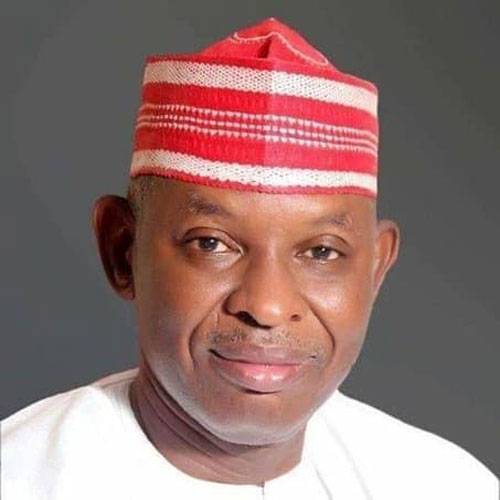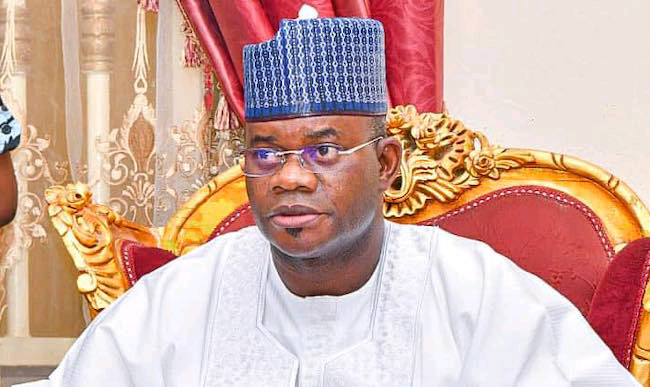Empirical evidence abounds to show that, all through history, the society records most progress as it responds to challenges that threaten the survival of the people. Even pre-historic man discovered fire because, without it, he could not survive. These threats are mostly pronounced by scarcity, hostile neighbours or climatic changes of a humongous nature.
By the time President Muhammadu Buhari assumed office in 2015, it was obvious that Nigeria had reached the cross-roads in its desire to meet the needs of the citizenry. This is not about the blame game for, as a Nigerian adage aptly puts it, he who does not know when the rain started beating him is unlikely to know when it has stopped. Truth is, long before now, only lip service was paid to local capacity building, in the area of content development. That is why the steel rolling mills were allowed to die; the machine tools companies were operating in whimpers while a critical industry like the Nigerian Newsprint Manufacturing Company at Oku Iboku in Akwa Ibom State simply went into oblivion. We could as usual, play the Ostrich and pretend that we do not know the reason. Simple: We prefer sourcing virtually everything abroad because that is where the kickback can satisfy our insatiable appetite for filthy lucre. Nothing suggests that Nigerians, like many other nationals, have all become saints.
We have become so miserably dependent that, to many people, Nigeria has sunken beyond redemption, only waiting to be sold to the highest bidder; some suggest, to the Chinese. While this skepticism is understandable, perhaps, there is still hope in the horizon. With our youth coming tops at various scientific and technological contests abroad and the exploits of some committed individuals and organisations at home, there is definitely a silver lining in the horizon.
If you were at the Research and Development (R&D) Competition of the Nigerian Air Force, as part of activities to mark the 2019 Nigerian Air Force Day Celebrations, you will understand why I am not just excited but indeed very optimistic. Various units of the Service displayed the products of their R&D efforts, all hoping to clinch the first prize. Actually, I doubt if there was a product on display that could not have won an award. At the end of the day, a device called the FOD Picker emerged tops. Coincidentally, even before the result was announced, most guests had identified the product as a potential winner.
The first indication to that the FOD Picker could become a chart buster could be seen as the guests listened with rapt attention while Warrant Officer (WO) Taiwo of the 131 Engineering Group, Makurdi marshaled the qualities of the equipment. By the way, the FOD simply means Foreign Object Damage. According to WO Taiwo, the main work of the FOB Picker is to keep the general operational area of an airport and the hanger free of all foreign objects, in this case both ferrous and non ferrous that could be ingested into the aircraft engine. Made from aluminum sheet, stainless steel and galvanized iron ore, the inner plate of the FOD Picker Machine Prototype 2, as the one on display is called, is fitted with electromagnetic and vacuum cleaner. It is powered by a 24V battery hence making it extremely adaptable in remote areas where NAF aircraft are currently engaged, combating terrorism or other forms of instability.
To the NAF, the FOD Picker is somewhat emblematic of the trail that the Service has blazed since the Buhari era towards finding local solutions to complex problems bedeviling its operations. For instance, all the parts of the FOD are sourced locally. There was a huge applause when WO Taiwo disclosed that whereas it costs N500, 000 to produce it locally, a foreign variant will cost 50, 000 US dollars; that is, eighteen million naira at the present conversion rate of N360/USD at the parallel market. By the same token, the cost of maintenance is also lower. Guests, at the occasion which included the Secretary to the Government of the Federation were not perturbed by the sweltering heat of the punishing sun as they watched WO Taiwo demonstrate the FOD Picker pick up nails, pebbles and sundry materials in an almost noiseless operation. This is indeed a great effort by the 131 Engineering Group, Makurdi, headed by Air Commodore Pius Oahimire.
The Makurdi Engineering Group is significant within the context of the dramatic changes and paradigm shift that the Buhari Administration has brought about, in the Nigerian Air Force, under the incumbent Chief of the Air Staff, Air Marshal Sadique Abubakar. This is in two fundamental areas. The first, and this, points to the decay and erosion of values earlier mentioned, is the fact that the Nigerian Air Force Machine Tools Workshop Complex at Makurdi had been lying comatose for over 20 years before Air Marshal Abubakar assumed office as the Chief of the Air Staff. The second fundamental point is that the workshop was fixed by Nigerian engineers in collaboration with the University of Maiduguri whose Engineer Shuwa Muhammed, now embedded with the Air Force Institute of Technology, AFIT, Kaduna, is also the arrowhead of many collaborative efforts between the NAF and the university. One such area is for the anti-skid test bench of the Alpha Jet aircraft, one of the most strategic platforms for the counter-insurgency campaign in the North East. It is also not surprising that the R&D project of the FOD Picker was done in collaboration with the Department of Mechanical Engineering of the University of Agriculture, Makurdi. Such synergy has become the hallmark of civil military relations between the NAF and institutions of higher learning and related agencies in the Buhari Administration. At the last count, the NAF has signed MOUs with about 15 universities and two technological agencies.
What emerges from the foregoing is the undisputed fact that where there is the will, there will always be a way. In this, the factor of leadership is central. It is in the interest of the nation that President Buhari’s charge, to various agencies, on local capacity building has received unqualified and unalloyed support in the Nigerian Air Force. It goes without saying that the benefits are many and profound. For one, the savings as demonstrated in the FOD Picker falls in line with the prudence the President preaches; the multiplier effect of local sourcing of production items is a boost to the economy by way of employment while the growth in competence can only serve as a catalyst to indigenous effort towards the realisation of a self-sustaining economy.
What is left, in all this, is the role of the indigenous capitalist elite in promoting indigenous research and development efforts through investment and commercialization of the patented R&D products. Last year, I had the privilege of interacting with university scholars and administrators at some Nigerian universities. Without exception, they all bemoaned two drawbacks to R&D in Nigeria namely: miserly allocation and the lack of interest by Nigerian entrepreneurs. This is where the issue of patriotism begins to take centre-stage: without a patriotic indigenous capitalist elite, moved by the “frontier spirit” and ready to take risks even in the face of initial losses, the quest for a self-reliant economy will remain a mirage and for so long will the commendable effort of the Buhari Administration, as exemplified by the initiatives of the Nigerian Air Force, remain a painful drop in a vast oasis of neglect and hypocrisy.





